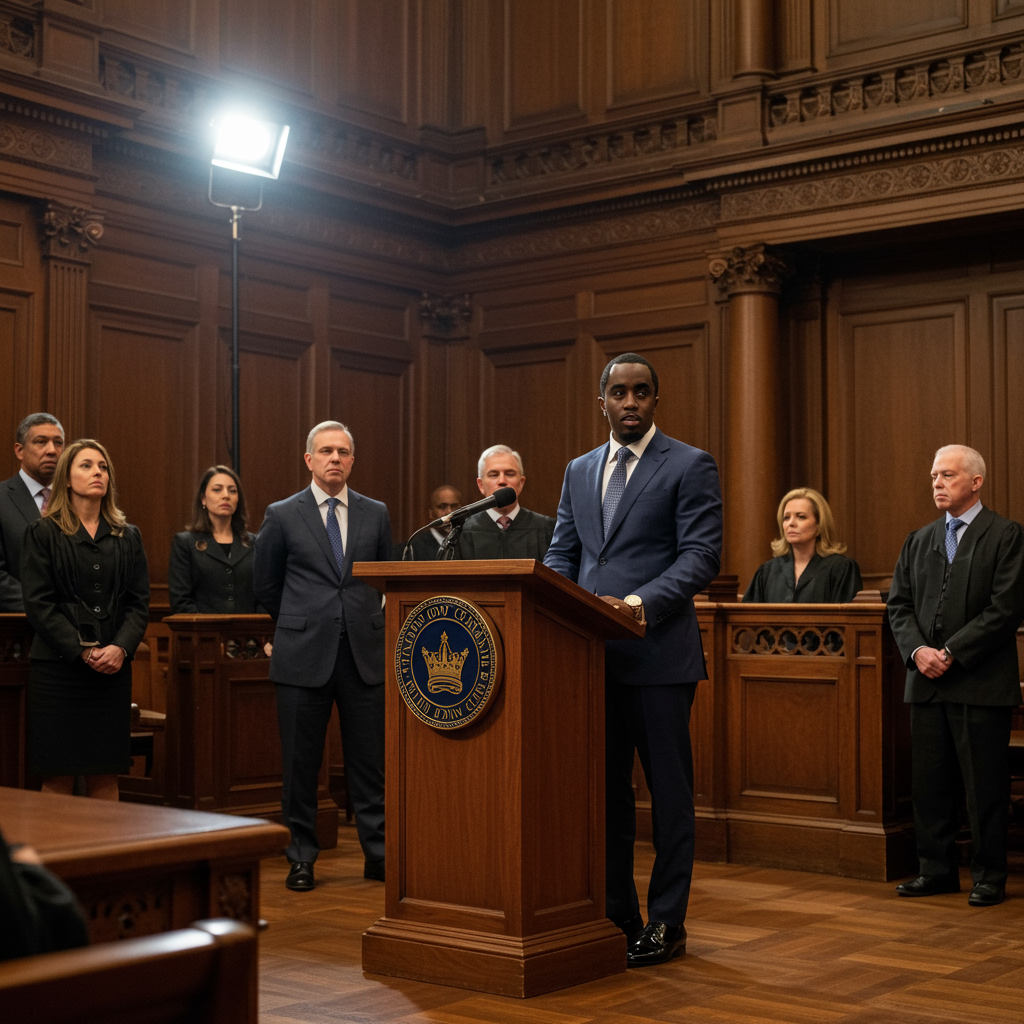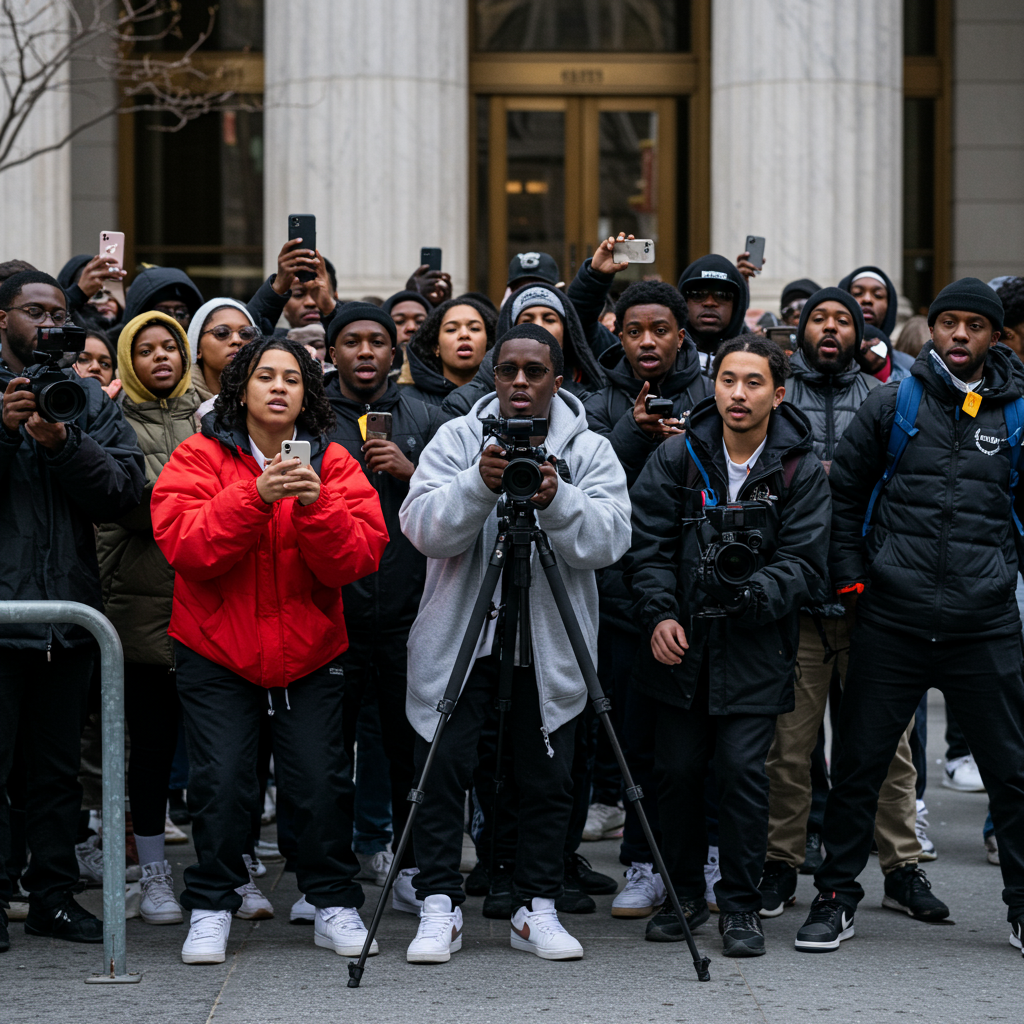After more than six weeks dominated by prosecution testimony, Sean “Diddy” Combs’ legal team is poised to present its case in his federal criminal trial. Combs faces serious charges including sex trafficking by force, transportation to engage in prostitution, and racketeering conspiracy – allegations he vehemently denies, having pleaded not guilty to all counts.
Prosecutors have alleged that Combs orchestrated and concealed a criminal enterprise for decades, using his influence and resources to facilitate abuse and coerce individuals into sexual acts. They’ve presented testimony from nearly three dozen witnesses, including ex-girlfriends, former employees, male escorts, and even fellow artist Kid Cudi, alongside evidence like text messages, hotel records, financial transfers, and explicit videos.
Now, the focus shifts to the defense, which has indicated its presentation is expected to be remarkably brief – potentially lasting just one to two days. This short timeline suggests Combs himself is unlikely to take the stand.
The Defense’s Core Strategy: Consent, Not Coercion
From the outset, the defense has outlined its central argument: while Sean Combs may be a “complicated man” with a turbulent personal life, the relationships and sexual activities at the heart of the allegations were consensual, albeit potentially “unconventional.” They argue that the trial is fundamentally about complex, often tumultuous, personal relationships driven by jealousy and competition among partners, not a criminal enterprise.
Defense attorneys have even taken responsibility for instances of domestic violence, explicitly stating during opening arguments that while such behavior occurred, “Domestic violence is not sex trafficking.” Their strategy is to distinguish acknowledged personal misconduct and drug use from the specific federal charges of running a criminal operation and sex trafficking.
A significant part of the defense’s narrative is the claim that the mounting allegations and civil lawsuits against Combs are a “money grab” targeting a successful businessman. They have attempted to highlight the financial motivations of accusers during cross-examination.
Countering the Prosecution’s Evidence
Over the past several weeks, the defense has primarily used cross-examination to chip away at the prosecution’s narrative, laying the groundwork for their concise case. Key pieces of evidence and testimony they’ve addressed include:
The Cassie Ventura Video: The prosecution relies heavily on a 2016 hotel security video showing Combs physically assaulting his then-girlfriend, Cassie Ventura. While the defense acknowledges the violence depicted, they dispute its link to sex trafficking charges. They claim the $100,000 payment made by Combs to a hotel security supervisor was intended to prevent a public relations disaster by keeping the video private, not to obstruct a criminal investigation. Ventura herself testified she feared for her safety and that the attack occurred as she tried to flee a violent sexual performance.
“Hotel Nights” and Sexual Activities: The prosecution describes these as orchestrated, drug-fueled orgies where Combs coerced women into sex with male escorts, facilitated by his business resources. The defense counters by portraying these activities as part of a private “swinger lifestyle” involving consenting adults. Through cross-examination, particularly using text messages between Combs and alleged victims like “Jane” (who testified anonymously), the defense has sought to demonstrate willingness, enthusiasm, and even independent planning of these encounters by the women involved. Messages presented reportedly show Jane expressing enjoyment, arranging logistics, and giving affirmative consent to Combs’ suggestions, attempting to show these were mutual arrangements, not forced acts. They also argue expenses were paid from Combs’ personal accounts, further separating these activities from his business empire.
Witness Testimony and Motives: The defense has challenged the recollections and motivations of witnesses who testified for the prosecution, particularly those who have also filed civil lawsuits against Combs. They have questioned witnesses about their financial dependence on Combs and suggested their testimony is driven by the prospect of financial gain, supporting their “money grab” theory. While some former employees testified to positive aspects of working for Combs’ companies, others detailed purchasing drugs and supplies for the “hotel nights,” which the defense frames as part of Combs’ separate, problematic personal* life.
What to Expect as the Trial Nears Conclusion
Given the stated brevity of the defense’s case, they are expected to focus on reading evidence into the record rather than calling numerous witnesses. They plan to file a motion for a directed verdict of acquittal, arguing the prosecution has not met the burden of proof for the criminal charges.
Following the defense’s presentation, the trial will move quickly towards its conclusion. A charge conference to finalize jury instructions is anticipated, followed by closing arguments (expected to be up to four hours per side) potentially later this week. The judge will then charge the jury on the law before they begin deliberations.
With the jury verdict sheet reportedly already prepared, the high-stakes trial of Sean Combs is rapidly approaching its critical phase, where his defense will attempt to persuade the jury that his acknowledged complex and problematic personal life, even involving domestic violence, does not amount to the federal crimes of sex trafficking and racketeering conspiracy.




